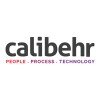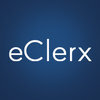
i
EXL
Service
Filter interviews by
EXL Service Executive Interview Questions and Answers for Experienced
6 Interview questions
I bring a unique blend of leadership, strategic thinking, and problem-solving skills to drive growth and innovation at exl.
Proven track record of successfully leading teams to achieve business objectives
Strong strategic thinking abilities to identify opportunities for growth and improvement
Expertise in problem-solving to overcome challenges and drive innovation
Experience in implementing effective processes and sys...
Negotiable based on role, experience, and benefits package.
Expected package is negotiable based on the role being offered.
Factors such as experience, skills, and the benefits package offered can influence the expected package.
Candidates can research industry standards and salary ranges to have an idea of what to expect.
Current assets are assets that are expected to be converted into cash or used up within one year.
Current assets include cash, accounts receivable, inventory, and prepaid expenses.
They are listed on the balance sheet and are important for assessing a company's liquidity.
Examples of current assets are cash in bank, short-term investments, and accounts receivable.
Current assets are crucial for a company's day-to-day ...
Yes, I am comfortable with the hybrid model as it allows for flexibility and collaboration.
Hybrid model combines remote work with in-person work
Allows for flexibility in work schedule and location
Encourages collaboration among team members
Example: Some days working from home and some days in the office
Insurance is a financial product that provides protection against specified risks in exchange for payment of a premium.
Insurance is a contract between an individual or organization and an insurance company.
The individual or organization pays a premium to the insurance company in exchange for coverage against specific risks.
Types of insurance include health insurance, life insurance, auto insurance, and property in...
The golden rules of accounting are basic principles that guide the process of recording financial transactions.
The three golden rules are: Debit what comes in, Credit what goes out; Debit the receiver, Credit the giver; Debit expenses and losses, Credit income and gains.
These rules help maintain the balance in the accounting equation: Assets = Liabilities + Equity.
For example, when a company receives cash from a c...
EXL Service Executive Interview Experiences for Experienced
28 interviews found
(2 Questions)
- Q1. Tell me about your last working experience
- Ans.
I worked as a project manager at a tech company, overseeing the development of a new software product.
Managed a team of developers and designers to ensure project milestones were met
Collaborated with stakeholders to gather requirements and provide updates on project progress
Implemented agile methodologies to improve project efficiency and communication
- Q2. Why are you leaving that company?
- Ans.
Seeking new challenges and opportunities for growth.
Looking for new challenges and opportunities for personal and professional growth
Interested in exploring different industries or roles
Seeking a company with a better cultural fit or work-life balance
(2 Questions)
- Q1. Basic process knowledge
- Q2. Accounts related questions
I applied via Walk-in and was interviewed in Dec 2024. There was 1 interview round.
(2 Questions)
- Q1. Tell me about self
- Ans.
I am a highly motivated and results-driven individual with a strong work ethic and a passion for continuous learning and growth.
Experienced in leading teams and managing projects
Skilled in problem-solving and decision-making
Excellent communication and interpersonal skills
Proven track record of achieving goals and exceeding expectations
- Q2. Why are you joing in exl company
- Ans.
I am joining Exl company because of its reputation for innovation and growth opportunities.
Reputation for innovation in the industry
Opportunities for growth and advancement
Exciting projects and challenges to work on
Interview Preparation Tips
I applied via Walk-in and was interviewed in Sep 2024. There was 1 interview round.
(2 Questions)
- Q1. Tell me about your self
- Q2. Why should I hire you
- Ans.
I bring a unique blend of leadership, strategic vision, and proven results that align with your organization's goals.
Proven track record of increasing revenue by 30% in my previous role through innovative marketing strategies.
Strong leadership skills demonstrated by successfully managing a team of 50+ employees, fostering collaboration and high performance.
Expertise in navigating complex challenges, such as leading a m...
(2 Questions)
- Q1. Introduce about yourself
- Ans.
Dynamic executive with over 15 years of experience in strategic leadership, driving growth and innovation across diverse industries.
Proven track record in leading cross-functional teams to achieve organizational goals, such as increasing revenue by 30% in two years.
Expert in developing and implementing strategic initiatives that enhance operational efficiency, exemplified by a successful cost-reduction program.
Strong b...
- Q2. Sum basic details about the resume
(2 Questions)
- Q1. Distance and are you comfortable with night' sift and no work from home
- Q2. Family details about every family members
General questions computer and english grammar
I applied via Walk-in and was interviewed before Nov 2023. There were 3 interview rounds.
(4 Questions)
- Q1. Introduce yourself?
- Q2. Briefly describe your previous job experiences
- Ans.
I have over 10 years of experience in leadership roles across various industries, focusing on strategic growth and team development.
Led a team of 50 in a tech startup, achieving a 200% increase in revenue within two years.
Implemented a new project management system that improved efficiency by 30% in a manufacturing firm.
Developed and executed a marketing strategy that expanded market share by 15% in a competitive lands...
- Q3. What difference you create if you join exl?
- Ans.
I bring a unique blend of leadership, strategic thinking, and problem-solving skills to drive growth and innovation at exl.
Proven track record of successfully leading teams to achieve business objectives
Strong strategic thinking abilities to identify opportunities for growth and improvement
Expertise in problem-solving to overcome challenges and drive innovation
Experience in implementing effective processes and systems ...
- Q4. Expected package?
- Ans.
Negotiable based on role, experience, and benefits package.
Expected package is negotiable based on the role being offered.
Factors such as experience, skills, and the benefits package offered can influence the expected package.
Candidates can research industry standards and salary ranges to have an idea of what to expect.
(5 Questions)
- Q1. Describe about what's not written in your CV?
- Ans.
My passion for photography and travel experiences are not mentioned in my CV.
I have traveled to over 20 countries, capturing unique moments and landscapes through my camera lens.
Photography has been a hobby of mine since childhood, and I have won several local competitions for my work.
My travel experiences have taught me valuable lessons in adaptability, cultural awareness, and problem-solving skills.
- Q2. What experiences other' than dentistry you carry along?
- Q3. Requirements of night shift
- Ans.
Night shift requirements include ability to work late hours, stay alert, and maintain productivity.
Ability to work late hours without compromising performance
Maintaining alertness and focus during nighttime hours
Adapting to a different sleep schedule
Ensuring proper lighting and safety measures in the workplace
- Q4. Immediately joiner
- Q5. Describe laceration
Aptitude based assignment
Interview Preparation Tips
Basic general knowledge questions.
Interview Preparation Tips
I applied via Referral

(5 Questions)
- Q1. Self introduction
- Q2. Knowledge work experience
- Q3. Are you comfortable with night shift
- Q4. Are you comfortable with hybrid model
- Ans.
Yes, I am comfortable with the hybrid model as it allows for flexibility and collaboration.
Hybrid model combines remote work with in-person work
Allows for flexibility in work schedule and location
Encourages collaboration among team members
Example: Some days working from home and some days in the office
- Q5. Salary expectations
I applied via Referral and was interviewed in Feb 2024. There was 1 interview round.
(2 Questions)
- Q1. Basic questionnaire
- Q2. Previous organisation related
I applied via LinkedIn and was interviewed in Sep 2023. There were 3 interview rounds.
(1 Question)
- Q1. Normal interview
Questions related to your work experience.
(1 Question)
- Q1. You must know about your work if you have previous experience of any organization.
Interview Preparation Tips
I appeared for an interview before May 2023.
(1 Question)
- Q1. Normal question was asked tell me about yourself?
Question related to maths,reasoning,email writing,English was there
(4 Questions)
- Q1. Operation manager take the interview it was also normal general questions were asked?
- Q2. Where do you belongs?
- Q3. What is insurance?
- Ans.
Insurance is a financial protection against potential losses or risks.
Insurance is a contract between an individual or entity and an insurance company.
The individual or entity pays a premium in exchange for coverage against specific risks.
In case of a covered loss, the insurance company compensates the policyholder.
Types of insurance include health, life, auto, home, and business insurance.
Examples: Health insurance co...
- Q4. About the company what exl do?
Interview Preparation Tips
Top trending discussions






EXL Service Interview FAQs
The duration of EXL Service Executive interview process can vary, but typically it takes about less than 2 weeks to complete.
Tell us how to improve this page.
EXL Service Interviews By Designations
- EXL Service Business Analyst Interview Questions
- EXL Service Consultant Interview Questions
- EXL Service Executive Interview Questions
- EXL Service Assistant Manager Interview Questions
- EXL Service Senior Associate Interview Questions
- EXL Service Senior Executive Interview Questions
- EXL Service Data Analyst Interview Questions
- EXL Service Associate Interview Questions
- Show more
Interview Questions for Popular Designations
Overall Interview Experience Rating
based on 21 interview experiences
Difficulty level
Duration
Executive Interview Questions from Similar Companies
EXL Service Executive Reviews and Ratings
based on 401 reviews
Rating in categories
|
Senior Executive
4.5k
salaries
| ₹2.5 L/yr - ₹7.5 L/yr |
|
Assistant Manager
3.6k
salaries
| ₹6 L/yr - ₹12.6 L/yr |
|
Senior Associate
2.6k
salaries
| ₹2.3 L/yr - ₹7 L/yr |
|
Lead Assistant Manager
2k
salaries
| ₹10.4 L/yr - ₹18.2 L/yr |
|
Executive
1.9k
salaries
| ₹1.7 L/yr - ₹5 L/yr |

Genpact

DXC Technology

Mphasis

Sutherland Global Services
- Home >
- Interviews >
- EXL Service Interview Questions >
- EXL Service Interview Questions for Experienced
















